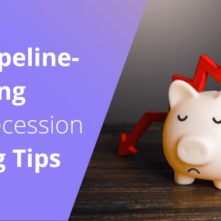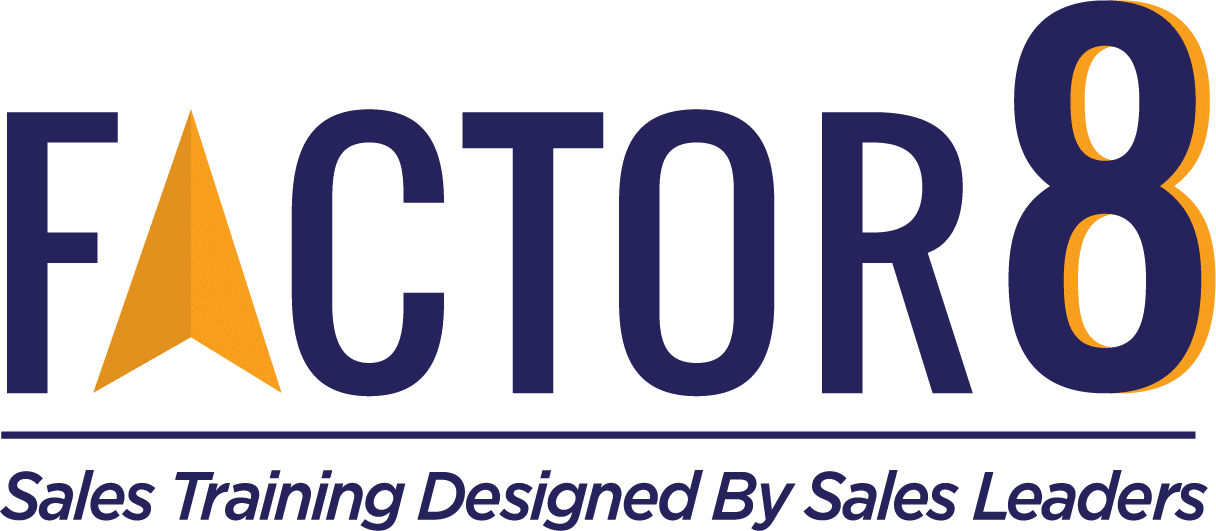
Team Performance


How To Ramp Your Sales Team 10x Faster
Ramping new reps to hit quota faster is every sales leader’s dream, but it doesn’t have to stay a dream. With the right approach, you can accelerate your team’s learning curve, helping them hit the ground running and reach their targets sooner. Here’s how to turbocharge your onboarding process and get your reps to quota 10x faster.
First, incorporate recordings into your training and play the pause game. This technique builds wider neural pathways, which speeds up how fast reps can remember and use new knowledge. It’s not just about listening—it’s about active engagement that sticks.
Next, ditch the boring “subject matter experts” and lifeless videos. If your training is one-way, it’s a dead-end. Instead, build in interactivity, and you’ll see your reps applying what they’ve learned much sooner. Make sales training a two-way street where participation is key.
Lastly, stop treating sales skills like they’re separate. In the real world, multitasking in sales is constant, so your training should reflect that. Teach skills together, not apart. By integrating different aspects of the sales process, your reps will develop a more holistic understanding, allowing them to pivot seamlessly between tasks.
Watch the video for more detailed advice on applying these tips to ramp your sales team fast so they’re hitting quota sooner!
Subscribe to our email list to receive new content, webinar invites, and training offers.
Sales Enablement Secrets: Building a Manager-First Approach to Empower Your Team
Sales Enablement Secrets: Building A Manager-First Approach To Empower Your Team
[Video Recording]
Meet the Speakers

Lauren Bailey
Founder
Factor 8 & #GirlsClub
Lauren Bailey, known to many as “LB”, is a sales leader, enablement leader, and entrepreneur and founder of 3 successful brands: Factor 8, providing front-line job training for inside sellers and managers, The Sales Bar, a subscription-based virtual sales training platform, and #GirlsClub, a community and development program helping more women earn leadership positions in sales.
Michelle Dotson
Head of GTM Enablement
As Head of GTM Enablement, Michelle ensures all global systems, tools, and programs are successfully in place to educate and enable internal employees, sales reps, systems engineers, partners, and customers on product, process, and everything in between.
Anna Vuong
Head of GTM Excellence
Formerly, Zoom
Formerly the Head of GTM Excellence at Zoom, Anna brings over 15 years of experience in Revenue Enablement to this webinar. Passionate about Manager Enablement, she is excited to share insights gained from her background and experience across enabling executive leadership, front line management, and supporting revenue teams. Anna is a seasoned professional dedicated to empowering sales leaders and promoting diversity and inclusion in the workplace as the founder of the Sales Manager Excellence Program at Zoom.
John Utter
Revenue Enablement, Americas
LeanIX
With a successful track record in sales and sales management in a variety of industries, John transitioned into sales training/enablement in the late 2000s, leveraging his knowledge and experience to empower emerging talent in the field. His most recent experiences are with international companies seeking to expand their global reach.
Sheryl Buscheck
Director, Global Revenue Enablement
Juniper Networks
Sheryl Buscheck is a passionate Enablement leader who has worked in technology for over 30 years, GoToMarket effectiveness for 20 years and Sales Enablement for 10 years. She is dedicated to ensuring every person is equipped to achieve their highest potential, and feels strongly that everything Enablement does should have measurable outcomes.
The Single Best Sales Coaching Questions Ever (& Nerdy Science Stuff to Prove It!) [Webinar Recording]
The Single Best Sales Coaching Questions Ever (& Nerdy Science Stuff to Prove It!)
[Video Recording]

Overcoming Sales Call Reluctance
Let’s dive deep into a phenomenon that’s rearing its head in the world of sales: call reluctance. Having chatted with senior sales leaders this month, it’s clear this isn’t just an isolated challenge; it’s a widespread issue. But why is it happening, and more importantly, how do we tackle it?
DOWNLOAD: 20 Value-Add Reasons to Call Your Customers
The Reason for Sales Call Reluctance
When you have reps dodging calls and taking refuge behind emails or DMs, you’re witnessing call reluctance in action. So, why are our once-confident reps hesitating? A few reasons…
The COVID Comfort Zone: The pandemic changed buying patterns. Many sellers shifted to a laid-back, order-taking mode. Now, as the world returns to some semblance of its pre-pandemic self, we need to dust off our sales hats and get back into the game.
A Crisis of Confidence: A few factors are at play here:
- The lack of immediate success can chip away at confidence and motivation.
- The absence of a clear purpose or compelling reason for calling.
- The pandemic brought easy sales, which meant we didn’t flex those traditional sales muscles. Now, they’re feeling a bit stiff.
Demoralized Frontline Leaders: These folks are the backbone of our teams. When they’re down, the whole ship can veer off course.
READ: Sales Is A Confidence Sport
Rebuilding Rep Confidence to Overcome Sales Call Reluctance
So, how do we turn the tide? How do we help reps build confidence and get back on the phones?
Rediscover the ‘Why’: Tap into what truly drives our reps and managers. Align their goals and motivations with their roles and rewards. It’s all about the personal connection.
Celebrate Small Wins: Start small. Take, for instance, a client of mine: once struggling with a mere 100 dials a month across a team, they shifted focus to small victories. Now? They’re rocking 90 discovery calls a week!
Skill Refresher: It’s time to retrain and remind our reps about the art of tactical sales. Equip them with the tools they need to navigate this new landscape.
Invest in Your Leaders: Here’s the golden nugget: support your frontline sales managers. I can’t emphasize this enough. Whether it’s training, resources, or just a chat over coffee, check in with them. And hey, if you’re looking for training, I might know someone. 😉 But jokes aside, these leaders are pivotal. Ensure they have the right support, tools, and motivation to steer the ship.
READ: Why You Need Training for Sales Managers
Best Practices to Remember
Embrace Technology: Virtual sales tools aren’t just about tracking; they can offer insights, refine strategies, and enhance client relationships.
Regular Check-ins: In the world of virtual sales, regular team check-ins can bridge the gap, ensuring everyone’s aligned and motivated.
Client Engagement: Beyond the sale, focus on building and nurturing relationships. Virtual doesn’t mean impersonal.
The sales landscape is ever-evolving, and while challenges like call reluctance arise, with the right strategies and support, we can not only overcome them but thrive. It’s about reconnection, retraining, and relentless support.
Do your reps need help overcoming sales call reluctance?
Contact us today to learn about our customizable virtual sales rep training programs
to help rebuild rep phone confidence.

Why You Need Training for Sales Managers
Sales is an ever-evolving landscape, with tools, techniques, and targets shifting regularly. Yet, while we often focus on training our frontline sales reps, there’s a critical group that’s frequently overlooked: sales managers.
In fact, 60% of new managers fail within the first 24 months in their role. Why? Lack of training and development. Oftentimes, companies will promote reps into management without providing critical leadership skills to prepare them for their new role.
DOWNLOAD: Critical New Manager Skills to Master
Let’s dive into why training for sales managers is paramount and the benefits that come with it.
Why Do We Neglect Sales Manager Training?
Often, organizations operate under the assumption that a stellar sales rep will naturally transition into a stellar sales manager. However, the skills required for each role differ significantly. Managing a team, strategizing, forecasting and coaching demand a unique skill set that isn’t always innate.
The Case for On-the-Job Training for Sales Managers
- Different Roles, Different Skills: A top-performing sales rep doesn’t automatically make a top-performing sales manager. Management requires understanding team dynamics, effective communication, and the ability to inspire and lead. On-the-job training equips new managers with these essential skills.
- Rapid Adaptation to Change: The sales environment is dynamic. According to a report by CSO Insights, organizations with a dynamic sales process, which includes regular training, reported a win rate of 49% for forecasted deals, compared to those with a random or informal process.
- Consistency in Approach: With proper training, sales managers can ensure consistency in sales strategies, team communication, and performance reviews, leading to a more cohesive and effective sales team.
DOWNLOAD: Leader Activities to Start & Stop Doing
Benefits of Training Sales Managers
Short-Term Benefits
- Increased Engagement: According to Gallup, managers account for 70% of the variance in employee engagement. Well-trained managers are more likely to engage and motivate their teams.
- Improved Performance: With better training, managers can effectively guide their teams, leading to increased sales and higher win rates. 84% of sales reps achieve their quotas when their employer incorporates a best-in-class sales enablement strategy.
- Reduced Turnover: A report by the Sales Management Association found that improved manager training reduced salesperson turnover by up to 19%.
Long-Term Benefits
- Consistent Growth: A well-trained sales management team can be a game-changer for revenue growth. According to research by the Sales Executive Council, sales teams led by supportive managers are 67% more effective at closing deals than those with managers who exert high levels of pressure. This shows that the right training can significantly influence managerial styles and, by extension, team performance.
- Increased Profitability: The Harvard Business Review highlighted that companies that invest in training see a 24% higher profit margin than those that spend less on training. While this encompasses all forms of training, the impact of upskilling managers – those responsible for driving and guiding the sales strategy – cannot be underestimated.
- Stronger Leadership Pipeline: On-the-job training prepares sales managers for higher leadership roles, ensuring a robust succession plan. This is crucial for organizational stability; a study by the Gartner for HR (formerly the Corporate Leadership Council) found that organizations with proper leadership training realized a 32% increase in leadership strength, which is directly tied to financial performance.
- Cultural Cohesiveness: Trained managers foster a positive, consistent culture, enhancing team collaboration and overall company morale. According to a Gallup study, companies with highly engaged teams report 20% higher sales and 21% higher profitability.
On-the-job training for sales managers isn’t just a “nice-to-have”; it’s a necessity. By investing in our sales leaders, we’re not only boosting current performance but setting the stage for sustained success in the future. It’s high time we prioritize sales manager training for those at the helm, guiding our sales teams to victory.
Are you looking for training for sales managers?
Contact us today to learn about our customizable virtual sales training programs
available for reps and managers.

Sales Is A Confidence Sport
If you’re reading this, you’ve probably made an outbound sales call. You’ve probably made thousands. Stop and think for a second just how many things about this take guts – it takes sales confidence. Calling a stranger not expecting your call and essentially asking them for money. Betting a chunk of your family’s income on your abilities. Try to pretend you’ve never done it before. Can you remember your initial hesitance? The questions you had? The doubts and fears?
This is how our new hires and yet-to-be-hired people feel. We forget that sometimes. This is scary stuff.
It takes confidence in yourself, your ability to connect, to think on your feet, to pull the right phrase, the right answer, the right joke.
Not all of us are born with this kind of confidence – the deep knowing, the foundation, the deep belief in one’s own abilities. And many of those people are in sales.
How do we do it? With another word called bravery. Bravery isn’t the same as confidence.
I describe bravery to my kids as feeling scared and doing it anyway. “I know the hallway is dark honey. I know you feel scared. That’s why they call it being brave. It wouldn’t be bravery if you weren’t scared. You’ll be ok.” Bravery is suiting up! Putting on the superhero cape and facing the bad guys.
We know this as “fake it till you make it.”
I grew up in a very unstable home life. We moved so much that every 2 years was a new school for me.
New girl.
New school.
New classroom.
New teacher.
22 pairs of eyes turn and stare at the new girl.
So I guess I know something about bravery.
I think that is why I’m drawn to sales. We push bravery in sales. Bravery is being a little terrified they’ll hang up or say no and doing it anyway. But confidence is being absolutely sure they shouldn’t. Really knowing and believing the value of my product and service, plus the value of me.
Which do you think sounds better on the phone? Confidence or bravery?
Confidence. Sure! Confidence is what sells. It’s what permits the deeper questions, the customer education, and the ability to challenge. It makes the extra dials, keeps customers on the phone, and overcomes objections. Confidence asks for referrals. And then does it again. And again. For years.
Confidence doesn’t burn out after a year and a half. (the average lifespan of an inside sales rep). But bravery sure does. There are only so many days we can put on that cape and that mask and pick up that phone. Suit up. Dial. Ask.
New girl. New school. New classroom. New teacher. 22 pairs of eyes…
Bravery is not a recipe for long-term success. And I assert that our sport of sales can benefit from going beyond bravery…to confidence.
But there’s a step between bravery and confidence and it’s called courage.
Courage isn’t “fake it till you make it”. Courage is the “making it”. And to make it, we have to go through the fear. Not over the fear, not around the fear, through the fear. We have to stand in it.
Quietly.
And it’s terrifying.
Courage is facing your fears. Naming them and then tackling them with an open mind and heart. It’s being vulnerable, being honest, and being open. It’s considering the rejection, the loss, or the humiliation and being OK with it and being you – a stronger you – on the other side. It’s letting others in to see.
It’s standing in the darkness. Until you are not scared anymore.
Like many, I have buckets of bravery, but not nearly enough confidence. And two things dawned on me recently:
- Admitting this out loud and actively learning about confidence and how we get it, how we lose it, how we can grow it is my path. It’s what I do – I find things that are hard to do, where we have a gap in public knowledge or ability, and I figure out a way to teach it. It’s my path to learn this, to share this, to teach this.
- I started 10+ years ago and didn’t know it. The reason Factor 8 is the most referred sales training company in the world isn’t just because of our curriculum. It’s our model. When we get on the phones and do what we teach, we’re not just applying skills, we’re growing confidence.
We’re asking a room full of strangers to pick up the phone and try something they learned 20 minutes ago. And we do it, together. And our facilitators stand with them in the dark. We listen, we encourage, we coach. We show everyone in the room that it’s OK to fail, it’s fun to mess up, and they don’t have to be perfect. In fact, we REWARD imperfection and risk-taking and we shine a little light into the dark room of courage. And you’ll never guess what comes out on the other side…
Confidence.
We’re in the business of teaching sales confidence. Our loyal clients and students probably already knew this. It feels like such a big revelation that it’s almost silly it took me ten years to figure it out. But now that I’m here? I’m immensely proud. I’ve always been proud of our model, our results, and the feedback we get that we change lives. But now I see how aligned Factor 8 is with my own path, my personal passions – and fears, and I’ve fallen in love with this little company all over again.
My challenge to you: Ask yourself if you’re pushing bravery at work or instilling confidence. Remember that bravery burns out and confidence is what sells. If you can help your teams grow the confidence, you’ll grow your results, you’ll keep your team longer, and you’ll all grow as humans. And isn’t that what it’s really all about?
Subscribe to our email list to receive new content, webinar invites, and training offers.

Top Recession Survival Tips For Sales Leadership
If you’ve been a leader in the sales industry for a while, chances are this isn’t the first recession you’ve worked through. Surviving a recession and leading your sales team through it is no easy feat, so if you’ve already powered through at least one, take a moment to pat yourself on the back.
The good news about recessions is that they don’t last forever. The bad news? Those leaders who have never been through it don’t know how to effectively navigate one now!
For many sales teams, they are chock full of young reps and managers who may be experiencing it for the first time. To feel the effects of it or constantly see headlines on mass layoffs across the board in just about every industry can feel scary, especially if their numbers are dropping and they’re starting to struggle.
We recently hosted two executive round table sessions and pulled in both existing clients and leaders from multiple industries for a collaborative session. We covered how the impending recession is affecting their sales teams, how they’re responding, and what changes they’re using to pivot and survive in a tough economy.
We had tons of great feedback and insights to unpack, so here are our key takeaways!
Go Back to Basics With Your Teams
Sounds simple, right? One of the best things you can do right now is combine old-world tactics with new-world sales coaching.
Think about it like this: When’s the last time you had a lunch and learn? How often are you doing 1:1 coaching with your managers? Do they know what approach to take to train reps how to be confident and face newer, stronger objections that are popping up due to budget cuts?
A lot of managers (whether under their own or internal pressure), may be falling back on old tactics that are actually DE-motivating their teams. You can help them be better at coaching their people and working through this together.
Emphasize a focus on solving problems that can be accomplished immediately versus meeting quotas or goals that are too lofty in this environment. One tip could be as simple as roleplaying on overcoming rebuttals with reps: coach them on how to navigate following up in the environment of a recession.
DOWNLOAD: Call Coaching Cheat Sheets
Collaboration is Key
One of the few positives of a recession? This is an all-hands-on-deck moment for your company – and that means it’s time to get comfy collaborating and engaging with other departments and personalities in the workplace.
One of my colleagues recently highlighted the success they’ve had breaking into new industries by pairing up two different departments to tag-team and educate each other for higher chances at their rep’s success.
If you have a dedicated team for researching, for example, have them send over their notes and top takeaways so your reps aren’t going into new territory blind. Consider strategizing meetings to share knowledge on nailing presentations, goals, and processes.
By investing time in your employees and encouraging them to do the same with each other, you’re not only creating a positive and collaborative environment, but you’re also utilizing existing resources and ensuring reps aren’t doubling down on the amount of work they’re taking on.
READ: 6 Tips to Improve Marketing-Sales Alignment
Always Position Your Value
It’s go-time when it comes to value props. You CANNOT lead with anything else in this environment, especially when executives like the CFO are almost always involved in the process these days. Clearly understanding the need and aligning your solution in a way that generates confidence and a clear path to success with ROI is a must.
Coach your reps to strategically position the value you’re offering. How will you generate ROI to be WORTH the long-term investment? What does your customer or prospect really care about right now? What are you helping to mitigate or solve for an executive’s involvement?
And honestly, in some cases, ROI isn’t the only way to lead and showcase value. Teach your reps how to reswizzle value props with a focus on reducing risk – show what you’re saving them and keep the angle on “safety” in uncertain times.
(People want Advil, not vitamins right now!)
WATCH: Build Pipeline And Keep Selling During A Recession
Have Conversations, Don’t Just Pitch
Want to know what something easy and totally free you can do to prime yourself for success in the future with your prospects?
LISTEN TO THEM!
Right now, people want to talk to those who can actually help with their problems rather than hear a canned sales pitch. The easiest thing to do is have conversations with your prospects and customers. Not sales conversations – just regular old conversations. Many sellers are often so focused on themselves that they miss the opportunity to build a relationship and understand their customers.
DOWNLOAD: 20 Value-Add Reasons To Call Your Customers
Consider All Avenues For Revenue Generation
If you’ve put in the work to break into other industries or had options that have been on the back burner, now may be the time to get that rolling when it comes to prospecting and discovery. Cast a wide net!
But for others, it can also mean being more purposeful as to where you are investing your time and energy and having your reps focus their prospecting efforts. Narrowing the scope can be just as effective or work better for certain industries.
I recently wrote an article about this encouraging sales teams to turn DOWN their lead qualifications for filling the gaps in their funnels and pipelines. Defining existing regions or expanding into new industries is a quick way to generate a whole lot of new leads.
One other tool you can take advantage of is hyper-segmenting. See if you can identify buying patterns from existing customers (try sending out surveys, for example) and get the knowledge you can use immediately to build out your funnel in quick and scaleable actions.
Don’t be afraid to consider all the options when it comes to the best tactics for your team to drive revenue generation! The payoff will be worth it, whether it means breaking into a brand-new market OR staying hyper-focused on the avenues that bring guaranteed results.
Bottom line: don’t stop your activity, just change your activity.
Get Creative To Boost Morale
No matter what sales role you’re in, it’s pretty likely that folks are feeling pressured or stressed about meeting quotas. Even your top performers are likely feeling the heat here.
One awesome tip we discussed was having sellers focus on pushing products with a higher profit margin to help both the company AND filter the extra $ through to the reps selling them via a commission. Sharing the wealth does wonders for morale!
This is a great opportunity to come up with new sales incentive plans to ensure you’re keeping talent motivated and satisfied. You can help them stay engaged and on track to hit new goals – for example, can you come up with a way to celebrate awards? How about contests rewarding top skills like tenacity (having a longer close rate) or the most number of follow-ups achieved?
Make it fun! This is your opportunity to be as creative as possible.
READ: Changing Sales Incentives During A Recession
Final Thoughts
There you have it – even in a recession, you have tons of different angles to help boost sales team morale, fill your pipeline, and continue building relationships with your customers and prospects.
I guarantee whatever you are doing now is going to help TREMENDOUSLY when things get back to “normal”. Put in the work and hang in there!
Subscribe to our email list to receive new content, webinar invites, and training offers.

Leading Sales Teams Through a Recession
Nobody wants to use the “R” word, but whatever you call it, selling is tough right now. I’ve had the good fortune of speaking with dozens of leaders and managers about what they’re doing right now with their teams to protect their bases and keep building pipeline in case a recession does officially happen.
READ: Top Pipeline-Building and Recession Selling Tips
Here’s an idea I love that I hope you will steal when leading sales teams through a recession:
Turn down lead qualification criteria immediately.
As deals slow down, you’ll need more in the funnel to close the gap. If you’re using a standard BANT or MEDICC qualification criteria, work with the team to decide what is worth taking anyway. If your sales team isn’t busy creating proposals and demonstrating your solution, the simple answer is to get more leads. They could literally be sitting in the “reject” pile of your BDR/SDR or marketing team right now!
What should you accept? I’d start with budget.
Many buyers aren’t spending as freely right now, so if your lead qualification criteria require a ready budget, you’re rejecting most buyers.
I get it, you need leads ready and able to buy to close more deals, but if they’re not as available right now, are you willing to build future pipeline for when times change?
Can you and your team work harder to convince buyers you’re worth assigning a budget?
READ: Changing Sales Incentives During A Recession
Along these same lines, are you willing to build future pipeline for opportunities with longer timelines?
If we’ve moved on the B (budget) and T (timeline), what about Authority and Need? Truth is, now more than ever you need to show this is something prospects need over want. So check the value props being touted by your lead generation team. Can you switch something that feels like a “nice to have” to something that seems more like a “Can’t live without it, especially in today’s economy?”
For example, I sell training. People often come to us because they’re growing (nope, many in RIF mode now). Others find us because they know they need better onboarding and upskilling to attract and retain talent (nice to have, less important if not hiring).
READ: Why You Need Special Recession Payment Terms
How about this one?
During today’s economic times, the sellers are separated from the order takers. You can’t afford NOT to make sure your team have the very sharpest skills to close more deals. Protect your revenue by teaching your team how to push deals through when there’s economic uncertainty. (BTW, click here to email us and learn more about our training! 😉)
Finally, let’s talk about Authority or Champion. I think you’ve got to have it. Every deal in tough economies will be approved by your economic decision maker (e.g. CFO), and nothing is getting there without a champion explaining the urgent need for it right now.
Boom! BANT just became NC (Need and Champion).
Next step: go sit with the teams to help draft the right questions and gates for this. Just because you know what a good “need” looks like, doesn’t mean the person training your BDR team or writing the marketing copy can translate what you’re looking for into criteria and sales questions/marketing form fills.
Good luck out there!
Subscribe to our email list to receive new content, webinar invites, and training offers.

Top Pipeline-Building and Recession Selling Tips
Regardless of the industry you’re in, there’s no escaping the dreaded R-word: Recession.
Some industries might be struggling more than others (over 58,000 tech workers have been laid off since 2023), and those ‘other’ industries might not even be feeling the effects at all. But the bottom line is: you never know when you might be impacted by a recession or by the mitigating factors in a nervous and challenging economy.
Whether you’re in the thick of it or preparing for the worst, if you’re in sales the good news is you’ve got plenty of ways to protect the pipeline you’ve built and keep building on strong momentum.
Factor 8 Founder Lauren Bailey recently chatted with Doug Landis – advisor to the biggest and brightest SaaS startups and current Growth Partner at Emergence Capital, and Zach Miller – a 20-year enterprise-selling veteran and Vice President of Sales at Highspot. Together they compiled essential tips for both reps and managers to keep building pipeline, continue selling, and boost company culture and morale during an economic downturn.
WATCH: How To Build Pipeline And Keep Selling During A Recession
Spoiler alert: DON’T wait to implement these or fall into the analysis paralysis trap! Vigorous execution of these strategies ASAP is the best way to get ahead.
Top 3 Tips for Sales Reps
- Get Used to Selling to New Personalities
If you’re a rep, the likelihood of the CFO getting involved in your sale just got higher. They\’re often now the ones making the final decisions when it comes to implementing new tools and products and adding it to their existing budget. You may also want to get comfortable selling to procurement.
- Own Your Own Mindset
Don’t wait around for your managers to offer you more development, ask for it! If you’ve got goals you want to accomplish or skills you want to learn, do some of your own research first. Find the people who know what you want to know and utilize existing resources. Don’t make excuses for your own success – get out there and make it happen!
DOWNLOAD: Essential Virtual Selling Tips Guide
- Emphasize Loss, Not Gains
It might sound counterintuitive – but how many times do you think a decision maker has heard about all the money they’ll save if they just invest in [x] product? Probably about over a billion dollars worth! Finding ways to surpass the ROI and value your product adds by highlighting what they’re missing is the A+ solution right now.
Example: If you don’t buy today, you risk losing out on $100,000 a quarter.
(Looking for more tips on virtual selling? Factor 8 can provide the training and resources you need to excel. Learn more about our training and coaching services here. )
Top 3 Tips for Sales Managers + Leaders
- Get Involved Now
As a leader, it’s important you have a pulse on your reps’ activity without micromanaging. Both of you are in a critical atmosphere right now when it comes to sales – so make sure you aren’t waiting until there’s a problem or all hands are needed on deck before getting involved. Mitigating risk is important on both sides of the transaction!
- Protect Your Time
What’s the one thing you still have full control over? Your time! This is your best resource to utilize and protect. You may be inundated with “fire drills” from your reps – but making sure to prioritize and block off your schedule is still a crucial part of ensuring responsibilities are front and center.
READ MORE: Top 8 Sales Management Productivity Hacks
- Celebrate Wins
Quota is probably not the best way to motivate your reps right now if things are tight. So what can you do to keep culture motivated and morale high? Rethink your incentive structures! Shift from focusing on closed business to most leads, highest number of calls, or celebrate the smaller wins that might have previously been overlooked. When employees feel successful, they’ll also feel good about going back to work.
READ: Creative Tips for Rewarding Top-Performing Sales Reps
Remember: the economy is cyclical, so this downward turn isn’t forever. If you’re having a tough time adjusting to the new normal, take a deep breath and remind yourself this is a great opportunity to invest time into your personal training, building pipeline, and preparing for when business is back to booming. You’ll be ready!
Struggling to maintain your schedule? Do you want to take your team to the next level? Contact us today to learn about our available sales manager training programs.







